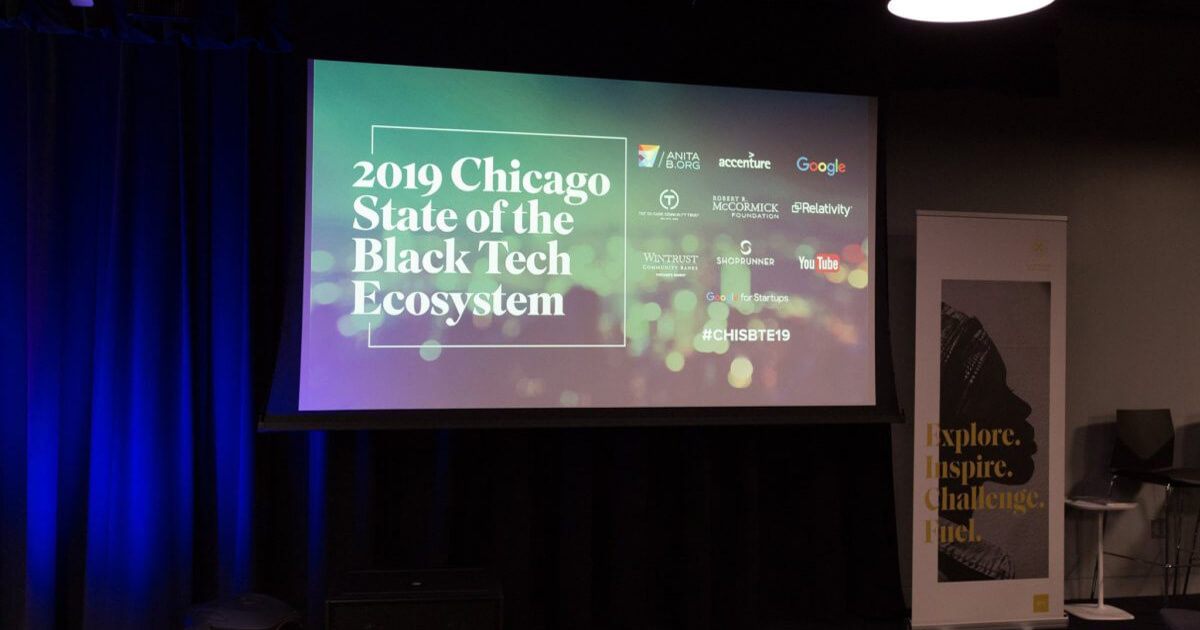It’s true that the actual numbers remain scant: Just 3% of venture capitalists are Black, according to a recent estimate. That’s up, at least, from CB Insights‘ estimate of 1% in 2010. But over the last year or so, there’s been a steady accrual of Black investors’ visibility, influence, and most important, financial impact helping to re-shape the industry’s perception of who innovators are, where they come from, and why they’re worth investing in.
Consider veteran investor Charles Hudson, whose four-year-old firm Precursor Ventures where he is the sole general partner closed a $31 million fund earlier this year. Or Serena Ventures by Serena Williams which debuted in April to make early-stage investments in startups led by women, people of color, and individual empowerment.
We caught up with a few Black investors to learn where they’re placing their bets and where they see opportunity on the horizon.
Innovation Grows Outside of Silicon Valley
Due to a number of factors like lower cost of living and tech talent pools derived from local college towns, several cities across the U.S. are emerging as innovation hubs with viable startup cultures and founders choosing to build closer to home. As such, investors across the board are increasingly broadening their scope beyond the borders of the West Coast.
The thinking that goes, ‘Oh, the next unicorn only comes out of Silicon Valley?’ People are realizing that’s not the case anymore, says Kobie Fuller, a partner at Los Angeles-based Upfront Ventures who joined the firm after leaving Accel Partners in 2016.
Fuller says he’s spending more time these days in places like Atlanta where startups in the metro area saw a record $649.94 million across 38 VC deals in Q2 of this year as well as Indianapolis, where, in July, home insurance focused startup Hippo became one of the latest companies to enter the billion-dollar valuation club. Fuller recently led a $14 million funding round in Indy-based startup MetaCX, a SaaS platform that uses real-time data to connect buyers and vendors.
Who Can Make You Put Your Phone Down
Black investors know the value of community, and it’s easy to imagine why now, more than ever, folks might want to turn away from the polarized hellscape of social media to find some real-life commonality. We’re betting on companies and industries that maximize what we call ’emotional currency,’ says M. Cole Jones, managing partner of RIISE Ventures, based in Atlanta. When you think about sports and entertainment, those two industries evoke emotions that can transcend any kind of racial [animosity].
In January, Jones and RIISE partner Sig Mosley, a prolific angel investor in the Southeast region invested in Axis Replay, a 12,000 square-foot event space that features speedy internet connections and high-end gaming consoles to facilitate local esports competitions. (Jones says Axis is looking to expand to other cities early next year.) With global esports revenues topping $1 billion this year and startups like PlayVS continuing to lower the barrier to entry for non-professional gamers the field doesn’t seem to be showing signs of slowing down.
Fuller’s investment strategy is also driven in part by in-person connections. Last year, Upfront was the lead investor in Series A funding raised by Bevy, which sells software that allows businesses like Duolingo and Fiverr to organize, scale, and track meet-up events for their power-consumers. Fuller also calls out Upfront’s investment in The Wing, a network of community and coworking spaces designed for women. That overall category of consumer behavior is very exciting, he says. (See also: Precursor Ventures portfolio company Squad, founded by MIT grad Isa Watson, which is an invite-only meet-up app that unlocks one-on-one connections as users accumulate event attendance.)
Betting on Black
While underserved areas among Black consumers are often deprioritized and relegated to the niche market category, investors of color are often better equipped to spot them for what they really are: no-brainers.
I could spend my entire career in venture and only focus on what others would call ‘niche markets,’ says Candice Matthews Brackeen, founder and CEO of Hillman, an accelerator program based in Cincinnati, Ohio.
Hillman launched in 2017 with an aim to have a greater impact on minority- and women-led tech companies. One “niche”-focused startup that the firm is currently vetting is Pressed Roots, a salon franchise that specializes in kinky- and coily-textured hair (imagine a melanated Dry Bar). Among Hillman’s past investments are SoloFund, a marketplace that facilitates peer-to-peer loans under $1,000, and KweliTV, a streaming platform founded by former journalist DeShuna Spencer, which curates content focused on the African Diaspora from 150 Black independent filmmakers. (Highly related: Serena Williams’s and Richelieu Dennis’s recent investments in hair-inventory startup Mayvenn.)
Netflix didn’t do really well last quarter because they aren’t expanding into new markets and aren’t dealing with a diverse list of titles, says Matthews Brackeen, who applauds the company’s recent deal with the Obamas, for example, but highlights the lack of organic content on its platform. We have to be able to see people who look like us on a day-to-day basis, and I think that’s what DeShuna is doing, she says. It may be my lack of bias for women who look like me that we were able to make an investment.
Driving Forward
While Black investors work to gain ground, the expectation is that their focus on enabling opportunity for underrepresented founders, regardless of geographic location, will increase. Having the foresight to spot significant and lucrative trends and needs in the industry will largely determine how these firms and their portfolio companies eventually foster long-term economic empowerment that was traditionally overlooked by contemporary venture capital practices.








